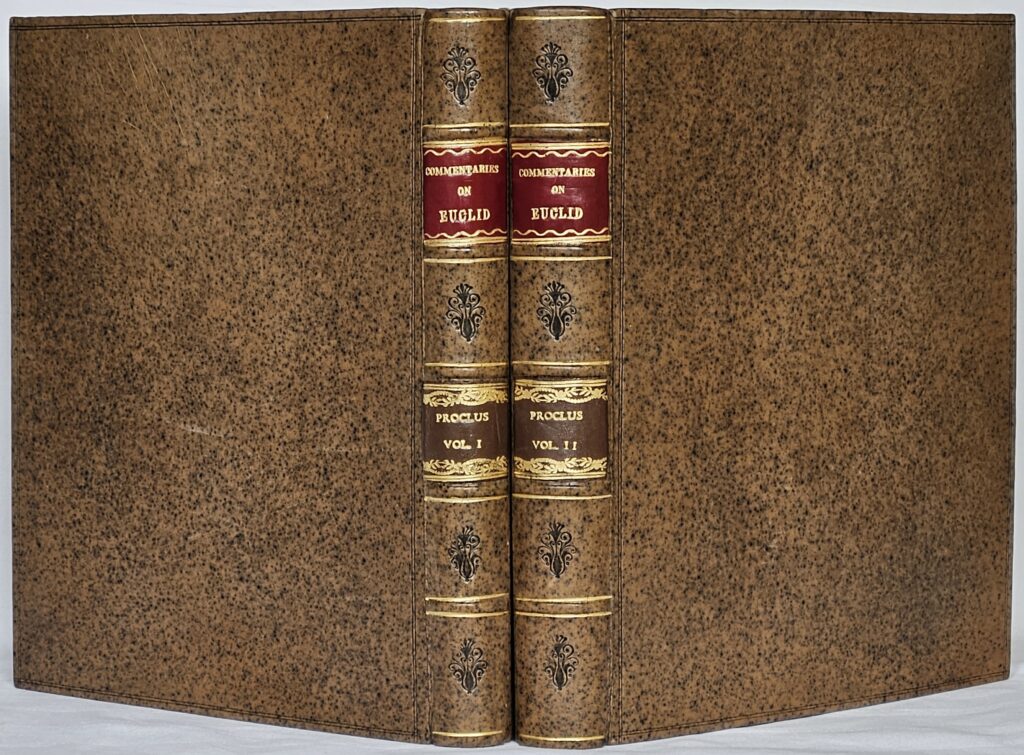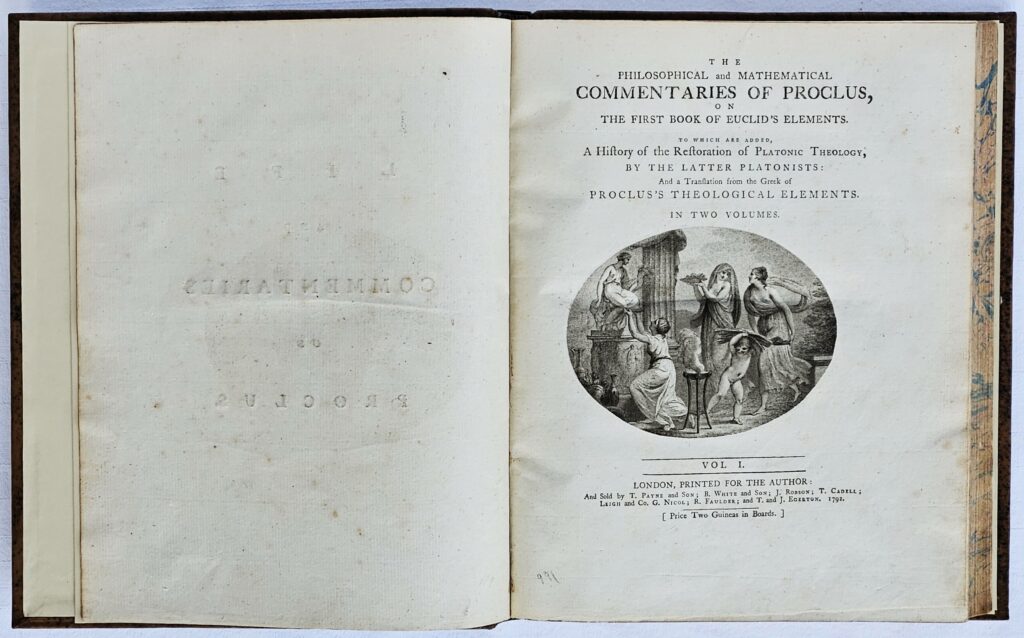‘Thomas Taylor (1758–1835) is, with justice, known simply as “Taylor the Platonist”. It was as a translator of Plato and the Neoplatonists that Taylor was most influential, both in England and America. He produced a five-volume edition of Plato in 1804, in which most of the fifty-five dialogues were translated by him – the remaining nine had been translated by Floyer Sydenham. Taylor’s practice as a translator was to add copious notes, drawing extensively on the Neoplatonic commentators and often adding his own essays. Of his other translations, the most important were The Life and Mathematical Commentaries of Proclus (2 vols, 1788–9) and a ten-volume Works of Aristotle (1806–12). The first volume of the Proclus Commentaries is prefaced by a lengthy ‘Preliminary Dissertation on the Platonic Doctrine of Ideas’ in which Taylor defends ancient philosophy against modern, and Plato against Locke. The second volume contains his ‘History of the Restoration of the Platonic Theology by the Later Platonists’, in which it becomes clear that Taylor wished to revive the Platonic theology in opposition to “the tyranny of religious despotism” (vol. 2, p. 316)’ (Dictionary of Eighteenth-Century British Philosophers, Thoemmes Press, 1999).


